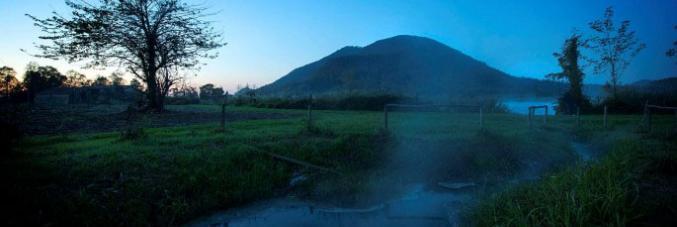
Euganean thermal water: a new resource in the fight against COVID-19
30.09.2025
A study published in the journal "Biomedicine" by the University of Padua, in collaboration with the Pietro d'Abano Thermal Studies Centre, has demonstrated that the salsobromoiodic thermal waters of the Euganean area, already known for their therapeutic benefits, can significantly reduce the inflammatory response caused by the spike protein of SARS-CoV-2. The research, titled "Thermal Water Reduces the Inflammatory Process Induced by the SARS-CoV-2 Spike Protein in Human Airway Epithelial Cells In Vitro," was conducted on human airway epithelial cells by a multidisciplinary team from the University of Padua.
Conducted with the collaboration of the Pietro d'Abano Thermal Studies Centre, Federalberghi Terme Abano Montegrotto, Fondazione CARIPARO, and the Municipality of Abano Terme, the study involved researchers for over two years of work. Among the researchers were Anna Scanu, Maria Chiara Maccarone, and Stefano Masiero from the Department of Neurosciences at the University of Padua, Roberto Luisetto from the Department of Surgical, Oncological and Gastroenterological Sciences at the University of Padua, and Fabrizio Caldara, scientific director of the Pietro d'Abano Thermal Studies Centre.
The results showed that treatment with thermal water reduced the production of inflammatory cytokines and modulated the activity of the ACE2 receptor, which serves as the entry point for the virus into cells. These data suggest a potential local protective effect, indicating that thermal inhalation therapies could support the health of respiratory mucous membranes during viral infections.
"In vitro treatment with thermal water showed a decrease in inflammatory cytokines and modulation of the ACE2 receptor, the virus's entry point into cells," explains Stefano Masiero. "Although conducted in the laboratory, the result suggests that thermal inhalation therapies could protect respiratory mucous membranes in case of viral infections." During the pandemic, many avoided thermal centres for fear of contagion, but this research suggests that thermal water, being natural, safe, and well-tolerated, could help reduce the inflammatory effects of respiratory infections.
"This study shows us how salsobromoiodic thermal water, naturally rich in mineral salts, can reduce the production of pro-inflammatory molecules induced by the SARS-CoV-2 Spike protein," continues Fabrizio Caldara, co-author of the research. "The results also suggest that the treatment could strengthen mucosal defences and limit the virus's binding to cellular receptors." This approach, if confirmed by further clinical studies, could also be useful against new emerging viruses.
While further clinical confirmations are needed, thermal water proves to be a promising natural therapeutic resource in supporting respiratory infections, without the risk of viral transmission, and thermal centres, thanks to safety protocols, are confirmed to be safe places for physical and mental wellbeing.



